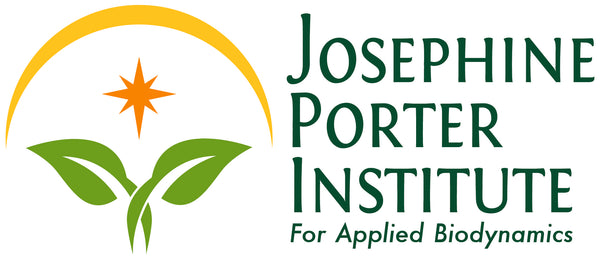Spiritual Science and Biodynamic Agriculture — Seeing Nature as a Living Whole
Share
What Is Spiritual Science in Biodynamics?
Biodynamics is not just farming; it’s a living science that seeks to understand the invisible forces animating the earth and plants. At its heart is the idea that nature is a living whole and that to truly care for the land we must learn to see beyond the surface.
This way of seeing is inspired by the method of Goethean observation, developed by Johann Wolfgang von Goethe and deepened in the 20th century by philosopher Henri Bortoft.
Goethe’s approach is a disciplined way of seeing that involves stepping into the phenomena and allowing them to reveal themselves as living, interconnected wholes.
– Henri Bortoft, The Wholeness of Nature, 1996.¹
The Nature Institute continues this tradition, studying natural forms and processes with attention to context, relationships, and dynamic movement—a method that informs biodynamic practice.
How Goethean and Anthroposophical Methods Guide Biodynamics
Rudolf Steiner’s Spiritual Science adds a meditative and empirical dimension to this way of knowing. His Agriculture Course (GA 327) revealed how cosmic forces and spiritual realities intertwine with soil and plant life.
The aim of spiritual science is to develop an inner sense organ to perceive the etheric and astral realms that underlie the physical.
– Rudolf Steiner, Philosophy of Freedom (1894).²
Biodynamics integrates this by using picture-forming methods, like sensitive crystallization (developed by Lili Kolisko at Steiner’s behest), which visually reveal the activity of formative forces.
Steiner had earlier asked Lily to find a method of demonstrating the activity of what he referred to as ‘formative forces,’ and she developed the method of capillary dynamolysis for this purpose.
– Hugh J. Courtney, Biodynamics for Beginners, 2023.³
This union of Goethean seeing and spiritual science forms the foundation for biodynamics as a holistic, observational science.
The Practical and Esoteric Importance for Farmers
Farmers trained in this approach learn to perceive soil and plant health as expressions of cosmic rhythms and spiritual vitality, not just chemistry. This deep perception enables them to work with nature’s own processes rather than against them.
The farmer who can develop a Goethean perception of the farm organism is better equipped to steward its life forces, aligning practice with spiritual realities.
– Stewart Lundy, JPI Substack, 2024.⁴
By developing this sensitive awareness, biodynamic agriculture fosters resilient, thriving farms that are living extensions of cosmic life.
📚 Footnotes
-
Henri Bortoft, The Wholeness of Nature: Goethe’s Way of Science (Edinburgh: Floris Books, 1996), 24.
-
Rudolf Steiner, Philosophy of Freedom (London: Rudolf Steiner Press, 2004), 50.
-
Hugh J. Courtney, Biodynamics for Beginners (Woolwine, VA: Josephine Porter Institute, 2023), 22.
- Stewart Lundy, JPI Substack, “Goethean Perception and the Farm Organism,” April 2024.
